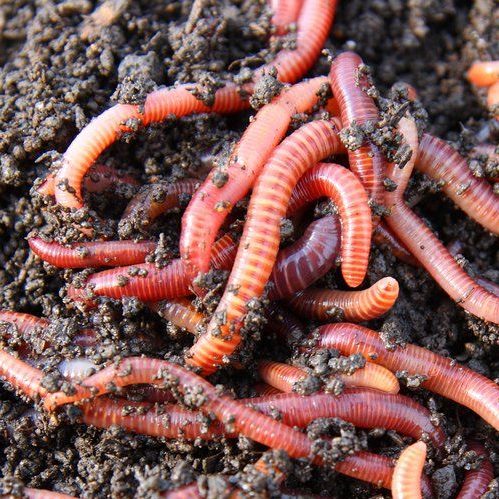Keep Your Lawn Green and Healthy with Expert Guidance from Lake Hickory Bait
The Extraordinary World of Red Wigglers: Boost Your Soil Fertility Today
These small yet effective organisms change organic waste right into valuable worm castings, significantly enhancing soil health and wellness and promoting sustainable techniques. As we explore the benefits of vermicomposting and the sensible steps to produce a reliable worm bin, the prospective influence of these worms on your gardening success becomes increasingly apparent.
Understanding Red Wigglers
Red wigglers, clinically referred to as Eisenia fetida, are a species of earthworm that play a crucial role in improving dirt fertility. These worms thrive in organic-rich atmospheres, such as compost heap and rotting plant product, where they consume organic waste and secrete nutrient-dense spreadings. Their one-of-a-kind anatomy, featuring a fractional body and a clitellum, allows them to replicate quickly and successfully procedure huge quantities of natural issue.

The eco-friendly value of red wigglers expands past mere waste handling; they add to the soil food internet, promoting a varied neighborhood of microorganisms that further improve soil wellness. Recognizing the biology and habits of red wigglers is important for using their complete capacity in lasting farming and horticulture practices.
Advantages of Vermicomposting
(Red Wiggler Express)Harnessing the power of red wigglers with vermicomposting offers many advantages that substantially boost soil health and fertility. Among the key advantages is the manufacturing of nutrient-rich worm castings, which are an exceptional natural plant food. Red Wiggler Express. These castings include crucial nutrients like nitrogen, phosphorus, and potassium, promoting durable plant growth and boosting crop yields
The existence of worm spreadings boosts dirt structure, enabling for much better water retention and water drainage. Red wigglers aid damage down natural issue, accelerating decomposition and recycling nutrients back into the soil.
Vermicomposting also fosters microbial activity, which is important for a healthy and balanced dirt ecological community. Beneficial microbes grow in the visibility of worm spreadings, assisting in the failure of natural products and improving nutrition accessibility to plants.
Finally, vermicomposting offers as a reliable waste monitoring remedy, reducing garbage dump waste by reusing cooking area scraps and various other organic materials. This not just adds to environmental sustainability however also promotes a round economic situation within horticulture and agriculture.
Just How to Establish Up a Worm Bin
Setting up a worm container is an uncomplicated process that can substantially improve your composting efforts. Begin by selecting an appropriate container, which can vary from a commercially available worm container to an easy plastic or wooden box (Red Wiggler Express). Make certain the container has ample ventilation; small openings in the cover and sides will promote air flow
Next, develop a bed linen layer to supply a comfy environment for the red wigglers. This can be made from shredded newspaper, cardboard, or coconut coir, moistened to a wet, sponge-like consistency. Fill up the bin to around one-third full with this bed linen material.
As soon as the bedding is prepared, it's time to introduce the worms. Red wigglers flourish in organic waste, so area them carefully onto the bed linens. Cover the worms with a light layer of extra bed linen to assist them accommodate.
Feeding Your Red Wigglers
Providing the right food for your red wigglers is important for their health and wellness and the efficiency of your composting system. Red wigglers prosper on a varied diet plan, largely including natural materials such as vegetables and fruit scraps, coffee premises, and shredded paper. These materials not just provide crucial nutrients however also add to the microbial task in the worm container, which is important for the worms' food digestion.
It is necessary to stay clear of specific foods, such as milk items, oils, and meats, as these can attract bugs and develop unpleasant smells. Furthermore, citrus peels and extremely spicy foods must be restricted due to their potential to damage the worms. A balanced method to feeding includes keeping track of the quantity of food presented to the container, guaranteeing that it is eaten within a practical time frame to stop excess waste accumulation.
To advertise visit homepage optimum food digestion, it is useful to cut or shred bigger food things prior to including them to the container. This technique increases the surface for microbial action, helping with quicker decay and improving the total efficiency of your composting system. On a regular basis observing the worms' feeding practices will certainly help you adjust their diet as necessary.
Utilizing Worm Castings in Your Garden

(Red Wiggler Express)Integrating worm castings into your yard can be completed by mixing them into the dirt or utilizing them as a leading dressing. The slow-release nature of these spreadings makes certain that nutrients are offered to plants over a prolonged period, lowering the requirement for artificial plant foods. Additionally, worm spreadings consist of useful bacteria that advertise healthy and balanced dirt environments, enhancing the total durability of your garden.
To maximize the advantages, aim to use around one part worm spreadings to three components soil in your planting beds. Regular applications can lead to improved crop returns and healthier plants, making worm spreadings a vital source for both newbie and skilled garden enthusiasts alike. By utilizing this all-natural amendment, you can cultivate a thriving garden while contributing to sustainable horticulture practices.
Verdict
In final thought, red wigglers exemplify the crucial role of vermicomposting in improving soil fertility. Their capability to transform organic waste into nutrient-rich spreadings dramatically improves soil structure and supports microbial diversity.